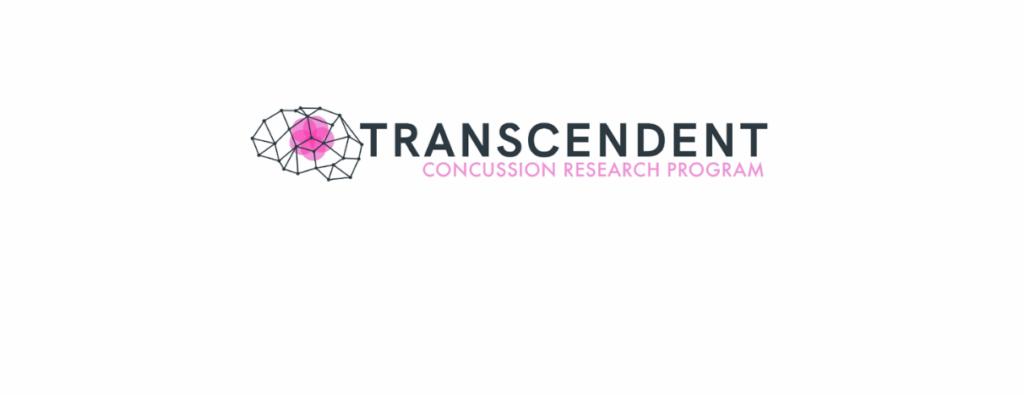The TRANSCENDENT Concussion Research Program, led by Ontario-based researchers, is the first and only site in Canada to offer the newest test for concussion, EyeBOX®. TRANSCENDENT is a research collaboration funded by the Ontario Brain Institute and supported by the CHEO (Children’s Hospital of Eastern Ontario) Research Institute and 360 Concussion Care, a multi-specialty concussion clinic. Alongside international collaborators, the program has teams in Ottawa and Toronto that are working to advance treatment and research for concussion patients.
The new concussion test is as simple as watching TV and is conducted via a device called the EyeBOX, manufactured by Oculogica®. The EyeBOX scan takes under four minutes and is the first and only FDA-cleared and Health Canada registered diagnostic aid for concussion that does not require a pre-injury baseline test. The objective test is appropriate for both children and adults, and for any source of concussion injury, not just sports.
Research shows that abnormal eye movements are often seen after a concussion or other brain injury. Observing a patient’s eye tracking is commonly used by clinicians in a post-head injury evaluation. Identifying abnormal eye movement resulting from a concussion can be a challenge without the expertise of a vision specialist. Developed by a neurosurgeon, EyeBOX helps eliminate the guess work and detect subtle eye movement deficits that could otherwise go unnoticed.
Dr. Roger Zemek, Senior Scientist at the CHEO Research Institute, and emergency physician at CHEO, leads the research teams in Ottawa and Toronto. These teams are the first to include the EyeBOX test in Canadian research studies and explore the tool’s ability to use vision impairments in concussion diagnosis.
“We are proud to have the unique opportunity to use the EyeBOX as part of our comprehensive TRANSCENDENT Concussion Research Program. This tool provides a rapid, objective assessment of subtle eye movements, and we are excited to explore its potential to enhance clinicians’ ability to identify and differentiate concussions,” explains Dr. Zemek. “Our research on this technology signifies the first step to having this technology accessible to Canadians. The EyeBOX could create a new standard to enable earlier interventions for patients with concussion and advance personalized healthcare to improve recovery for our patients and facilitate earlier return to school, work and activities as quickly and as safely as possible.”
Administering the EyeBOX test is easy. Similar to eye exams at an ophthalmologist clinic, or at drivers’ license facilities, patients place their chin on a chinrest and watch a video for less than four minutes. During this time, the EyeBOX collects and analyzes 100,000 data points to generate an individualized assessment called a BOX Score. The resulting BOX Score indicates whether abnormal eye movement is present to provide key objective information to inform healthcare providers on patients with a suspected concussion.
“Every day in Ontario, our researchers are making life changing discoveries that improve the lives of residents,” said Nolan Quinn, Minister of Colleges, Universities, Research Excellence and Security. “Our government is proud to invest in the Ontario Brain Institute and commend their TRANSCENDENT Concussion Research Program which will explore new ways to diagnose and treat concussions, leading to faster, more effective care.”
For more information on the TRANSCENDENT Concussion Research Program, visit transcendentconcussion.ca
PARTNERS:
The CHEO Research Institute is a global centre of excellence in pediatric research that connects talent and technology in pursuit of life-changing research for every child, youth and family in the CHEO community and beyond. The CHEO Research Institute coordinates the research activities of CHEO and is affiliated with the University of Ottawa. At the CHEO Research Institute, discoveries inspire the best life for every child and youth. For more information, visit cheoresearch.ca
The Ontario Brain Institute (OBI) is a provincially funded, not-for-profit organization that accelerates discovery and innovation, benefiting both patients and the economy. OBI’s collaborative team science approach promotes brain research, commercialization, and care by connecting researchers, clinicians, industry, patients, and their advocates to improve the lives of those living with brain disorders. For more information, visit braininstitute.ca
360 Concussion Care was founded to address a shortfall in concussion treatment and management. Concussions, the most frequent brain injury, affect hundreds of thousands of Canadians annually, leading to millions of lost work and school days. Their first clinic launched in Ottawa in September 2020, and has since grown to include Toronto and Mississauga. They deliver scientifically grounded, evidence-based, physician-led concussion care, steered by a team of multidisciplinary experts. They operate as a learning health system, seamlessly embedding research into care—every patient contributes to ongoing research, fostering new evidence as they deliver care. They produce and distribute publicly accessible knowledge resources, ensuring the latest research swiftly reaches those most impacted by concussions. To learn more visit 360concussioncare.com
Oculogica Inc. is an eye tracking-based, neuro-diagnostic company founded by Dr. Uzma Samadani, neurosurgeon with the Minneapolis Veterans Administration and President and CEO of US Neurosurgery Associates. The company has developed the EyeBOX, the first and only FDA cleared baseline-free aid in diagnosis of concussion. EyeBOX is FDA cleared for ages 5 to 67 years and is used by leading healthcare organizations, including Midwest Orthopedics at Rush University and Mayo Clinic. To learn more about the company and EyeBOX, visit oculogica.com
